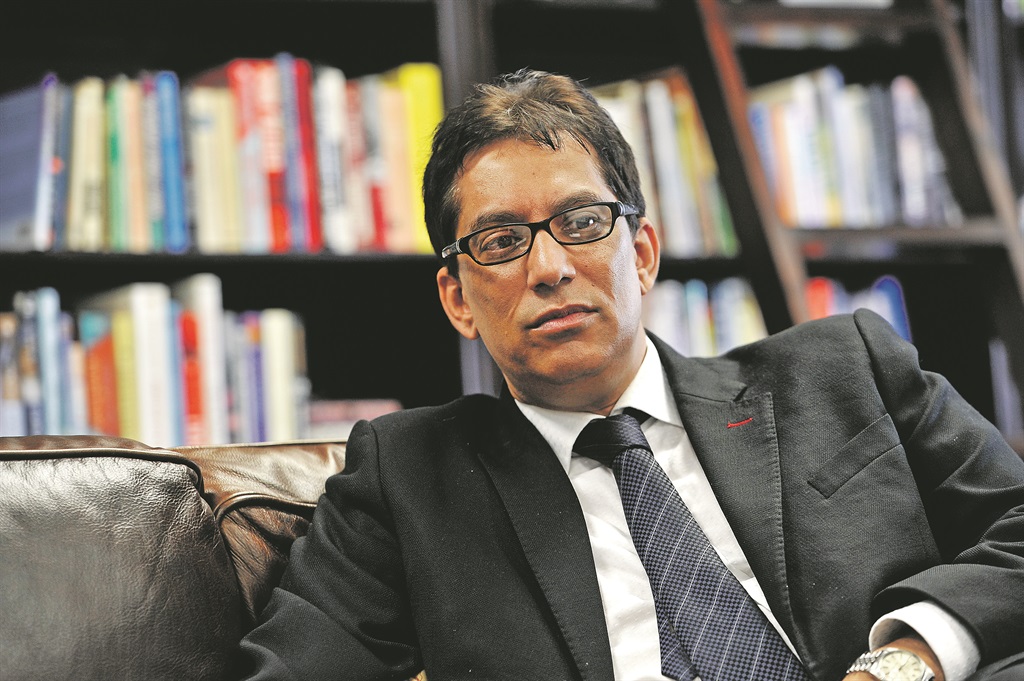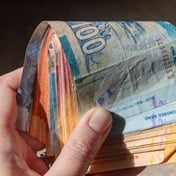
Company’s announcement of ‘significant revenue and profit growth’ is deceptive
Ayo Technology Solutions banked about R227 million in interest by the end of August from the controversial R4.3 billion investment it got from the Public Investment Corporation (PIC) late last year.
Now it is paying out R100 million in dividends, despite virtually all its profits stemming simply from the interest earned on the PIC money.
The company released its annual financial statements last week with a press release celebrating “significant revenue and profit growth”.
Its profits shot up 390% from R40 million to R196 million for the financial year to the end of August.
However, this was due to “investment revenue” of R227 million in the financial year.
This appears to simply be eight months worth of interest on the PIC money sitting in the bank.
If the interest earned on the PIC money up to the end of August is annualised, it comes to an interest rate of 8%.
That is equivalent to the interest anyone would earn on a short-term fixed deposit in a savings account.
Without the interest from the PIC cash, Ayo’s underlying financial results are actually pretty dismal.
Despite strong growth in the company’s operating revenue of 33% to R639 million, it would have had a loss if not for the interest.
Ayo said that this is not a fair reflection of their performance. The company incurred significant once-off costs in relation to its listing on the JSE and also “reinvestment into infrastructure, new business development and pre-contract operational requirements to secure new business”, said spokesperson Lauren Leonard.
If all these expenses are left out of the equation Ayo actually had “significant operational profit”, she said. The R100 million dividend will at least see the PIC recoup a small part of its cash as it owns 29% of the company.
THE PIC’S INVESTMENT
The PIC’s investment in Ayo in December was mired in controversy as the PIC bought shares at a price that many observers said bore no relationship to the actual value of the company.
In April, based on internal PIC documents that show its own staff fretting about the price they were paying, City Press first reported on the PIC’s seemingly irrational willingness to pump billions into Ayo.
The main stated purpose of the cash injection was to allow Ayo to buy 30% of British Telecom SA from Ayo’s own parent company African Equity Empowerment Investments (AEEI).
This deal stalled a few months later, leaving Ayo with the entire R4.3 billion in its bank account.
The PIC invested in Ayo at R43 per share.
Ayo shares are quoted at R25, meaning the PIC is 41%, or R1.8 billion, in the red.
The PIC insisted that it needed “downside protection” in the form of a put option – a kind of insurance contract that would allow the PIC to sell its shares at a predetermined price if the Ayo share price fell below a specified level.
The state-owned asset manager has confirmed that it did in fact recently conclude such an agreement, but it would not reveal details of the deal.
Survé has been the most active buyer of shares in Ayo for at least three months, which helps explain the share’s seeming imperviousness to any market news.
Since a major deal to acquire a stake in British Telecom SA fell through in August, the share price has mostly hovered at about R25.
At the same time, Survé’s Sekunjalo and his financial service company 3 Laws Capital bought tiny numbers of shares in August, September and last month, according to month-end data from the JSE.
Sekunjalo is 100%-owned by Survé’s family trust and 3 Laws is 85%-owned by Sekunjalo.
Survé’s tiny trades have added up to 95 588 shares costing less than R3 million – nothing compared with the indirect 30% stake Survé already has in Ayo through his control of AEEI, which owns 49% of Ayo.
By buying the share price, Survé’s trades could, however, be helping Ayo avoid the triggering of a “downside protection agreement” that protects the PIC investment in Ayo against further losses.
The PIC invested R4.3 billion in Ayo and has already lost R1.8 billion of that, based on the current share price of R25. The PIC confirmed that it had reached a downside protection agreement, but not with Ayo.
The agreement is with the sponsors of Ayo’s listing on the JSE – PSG Capital.
PIC spokesperson Deon Botha said: “The details thereof cannot be disclosed as this is bound by a confidentiality agreement.”
When first approached in September for comment on these purchases, Survé told City Press that the Sekunjalo Group “sees Ayo as an attractive long-term investment”.
Despite Sekunjalo, which is Survé, having an indirect 30% share in Ayo, Survé pointed to the tiny direct interest it has acquired, saying that his group “has a very small shareholding in Ayo and sees good value at the current levels”.
“Sekunjalo wants to increase its shareholding since Ayo, as the largest black information and communications technology company, should have good prospects over the next decade, especially with BEE being an imperative in the industry.” – Dewald van Rensburg
THE AYO EFFECT
Ayo’s cash-heavy balance sheet has had a knock-on effect for its major shareholder, AEEI, which is in turn majority-owned by billionaire media mogul Iqbal Survé.
AEEI also announced its financial results last week – an astonishing R5 billion profit, which is a 946% improvement on last year.
All of that is, however, due to a “gain on deemed disposal of subsidiaries” of R6 billion related to the fact that the company’s shareholding in Ayo, and its bloated PIC-funded bank accounts, fell to below 50%.
AEEI put out a press release celebrating its “excellent results” and “healthy” increase in profits.
The company did significantly improve its revenue from its operations, but the accounting for Ayo was the only reason the company had higher profits.
Comparing like for like, AEEI actually had a terrible year with headline earnings falling 75%.
Headline earnings is an accounting concept that strips out exceptional items unrelated to a company’s day-to-day operations – like the Ayo effect.
Nevertheless, AEEI declared a dividend of R59 million last week, which will be largely covered by the cash it is getting from its share in the Ayo dividend.
After selling shares to the PIC when it listed, Ayo is 49%-owned by AEEI.
AEEI is, in turn, 61%-owned by Sekunjalo Investment Holdings. Sekunjalo is wholly owned by Survé through his family trust, the Haraas Trust.
This effectively makes Survé the main indirect shareholder in both listed companies with a 30% indirect stake in Ayo.
This article was amended after publication to reflect Ayo’s response which was left out of the original. City Press apologises for the omission.
 |
| ||||||||||||
| |||||||||||||




 Publications
Publications
 Partners
Partners








